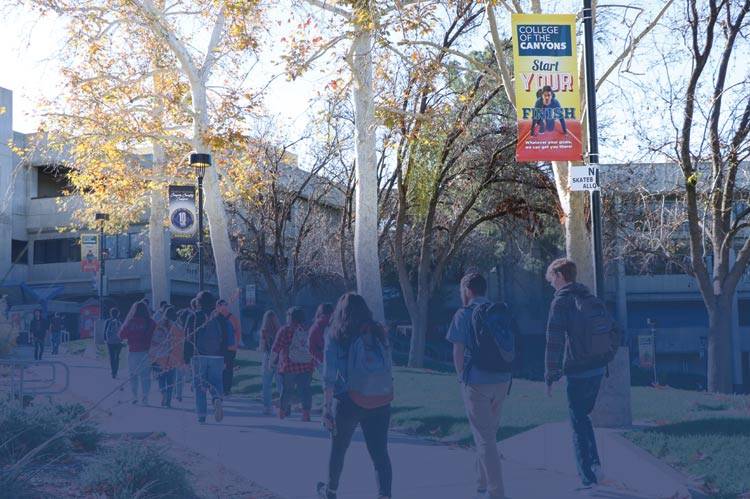Accommodations
Any student or faculty, full or part time, who have concerns about students' accommodations who are enrolled in AAC should contact the AAC Office at (661) 362 - 3341, or visit us in Seco Hall 103 at your earliest convenience.
AAC provides accommodations to its students contingent upon documentation on the type of disability the student has. The purpose of accommodations is to provide "otherwise qualified" students with disabilities the opportunity to demonstrate their knowledge in their studies. Below is a list that includes (but is not limited to) the accommodations provided at College of the Canyons.
- Adapted Furniture: Some students with physical disabilities may need to have a detached chair and table, versus an attached desk and chair, or they may need a chair without arms.
- Alternate Media: Students may qualify for different types of alternate media such as Braille, e-text, and tactile graphics. These formats give a person an alternative way to read traditional text.
- Assistive Technology: These are computer programs specifically for people with disabilities. For example, there are screen readers and magnification programs for those with vision impairments, scan and read programs for those with learning disabilities, and voice activated programs for those with motor impairments.
- Counseling: AAC provides counseling services for registration assistance, scheduling classes, vocational counseling, and disability related counseling. Students can make scheduled appointments through the AAC office.
- Extended Time For Tests: When a student has a documented need of extra time for taking tests, they will be allowed to take their tests either in the TLC lab or in class if the instructor is willing to stay for the extra time.
- Preferential Seating: Sometimes it is helpful for a student to sit in the front of the class.
- Priority Registration: Students who are part of AAC are provided with priority registration. This allows AAC students to register before the majority of students do, allowing them to get more of their desired classes.
- Shared Notes: A student may ask for a volunteer in the class, or ask the instructor to find a student willing to take notes during class. The note-taker should have good handwriting and good class attendance. The student can obtain NCR (double sided carbon) paper from AAC.
- Sign Language Interpreter: This accommodation is for people with hearing impairments or are deaf. A sign language interpreter will be provided to translate what the professor says into sign language for the student. They are also available to interpret for the student to communicate with the professor.
- Spell Checker: A spell checker is about the size of a pocket calculator. It can be purchased at an electronics store. Type in the word you want to spell, and it (often) gives you the correct spelling.
- Recorded Lectures: A recorder may be taken into class to record the lecture. The recording may be used by the student only and may not be shared with or sold to other students.

